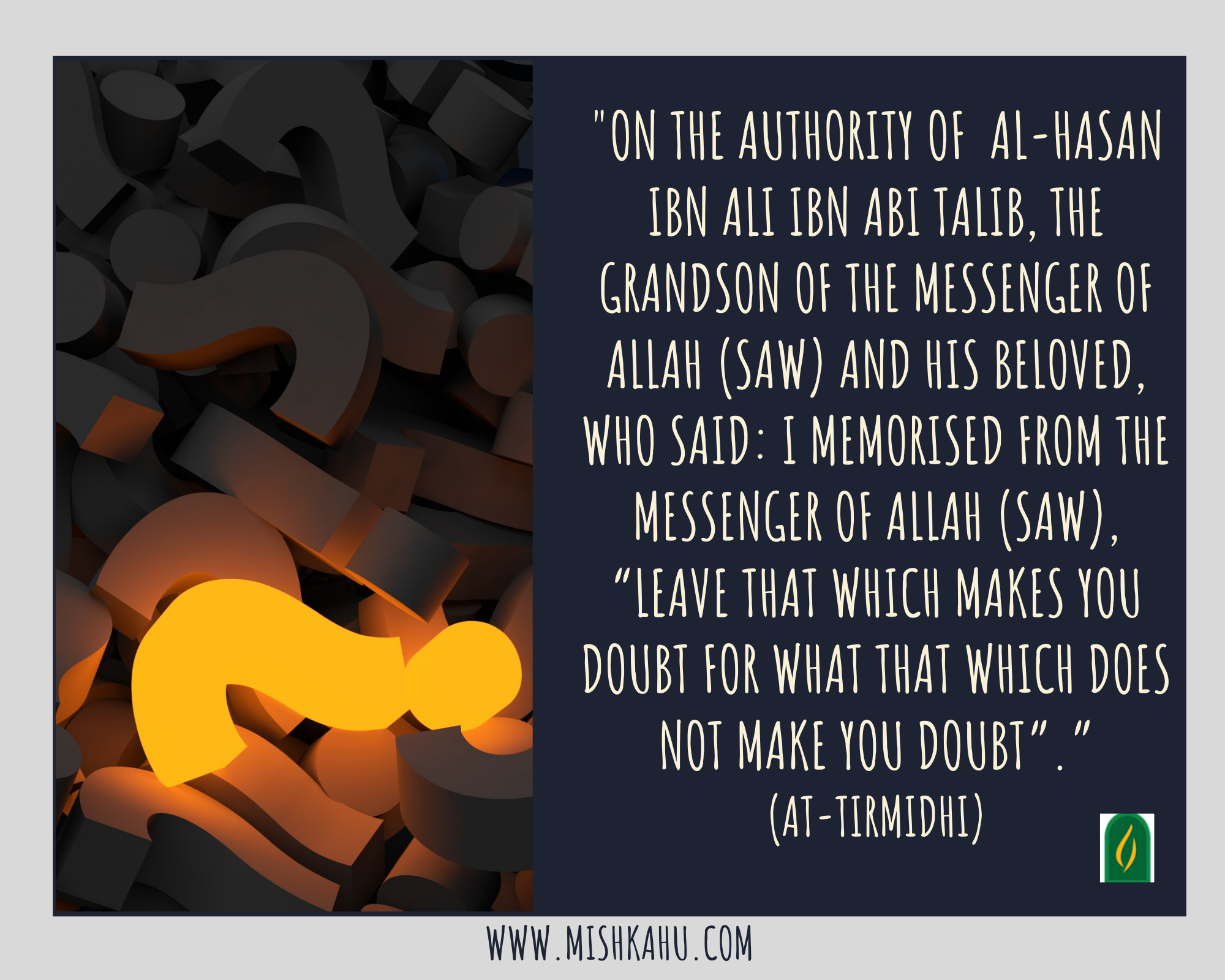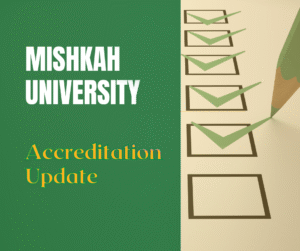Being Cautious with the Doubtful
This is the 11th hadith in our series by our student Dr Neelofer Sohail on the 40 Hadith of Imam Nawawi. These short reflections are written under the guidance of our instructor Dr Muhammad Al-Rahawan. Dr Neelofer is in her third year at Mishkah, and is geriatric physician, a wife and a mother of 3 beautiful children.
“Come on man, just do it. We are not really harming anyone and no one will ever know, it is just one puff.” The other boy looked at his friend and felt uncomfortable. He knew no one would know but something about this “one puff” did not seem right. Doubt, gut feeling, call it whatever you want, but Allah with His infinite mercy and wisdom has created us with an internal monitor that goes off when we are about to do something wrong. The 11th hadith in Imam Nawawi’s collection lays out a general principle for every aspect of our life and helps solidify the concept of a wara’ or internal monitor that we are born with.
Just like doubts can help protect us against doing something wrong, there are also doubts that can lead us down the path of suspicion and destroy something we cherish. These doubts may arise in our daily interaction with friends and family or in regards to our daily religious rituals. The latter kind of doubts may possibly be whisperings of shaytan which can cause anxiety, suspicion, obsessions, distractions, and eventually harm our relationships with our family and Allah in performing our religious duties. So how do we navigate through the quagmire of doubts and sort them out into good and bad baskets? Firstly, I would like to separate the doubts related to our daily life from those that are related to our religious rituals to allow a better understanding based on this hadith.
When someone gets involved in doubtful matters, the heart is restless and the person feels anxious, which is in contrast to the heart and mind that are at rest when someone acts in the permissible and proper way. So the easiest way is to give up all matters that are doubtful, but is that even possible? It is, but you and I know that in today’s world, most things are filled with doubtful matters both ethically and religiously and we do not have good role models to set the standards. Moreover, social media has given access to many people to give opinions without any real knowledge on religious matters.
Let’s start with doubts that plague our daily lives. These can include doubts about someone’s intentions, our own capabilities at work or school or even about our close relationships. These doubts can be constructive and help us re-evaluate ourselves and our relationships, and maybe clear assumptions. However, they should not be allowed to go unchecked to the point of causing harm rather than good. A hadith reported from Umar Ibn Al Khattab by Ibn Abi Mulayka stated,” It is not allowed for a Muslim who hears a word from his brother to assume evil of him if he can find something good about it.” (al-Tamhid 18/20- abuaminaelias.com)
So how does doubt relate to religion? Some prime examples are, “Did I pass gas and break my wudhu while praying?” “I like both the scholars but each of them said something different, who should I follow?” “Did I pray 2 or 3 rakahs?” One of the most important maxims in Islam is “Certainty overrules doubt.” It is important to understand that Allah has established certain concessions to make it easy for us. So in religious rituals we follow what we are certain of. In the case of the various opinions, start by following what both scholars agreed on and for the rest we have the Quran and the Sunnah to follow.
A practical tip to avoid doubtful matters is to trust your instinct. This allows for tranquility of the heart and mind. This helps in avoiding matters that are haram by making one’s imaan stronger. If it is a religious matter, ask an imam and if there is a difference of opinion and your heart does not feel comfortable, “Do not do it!”






